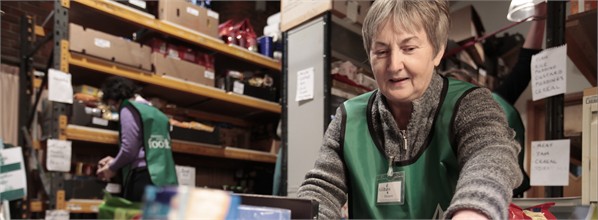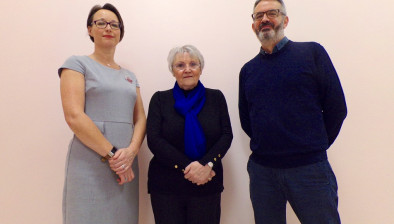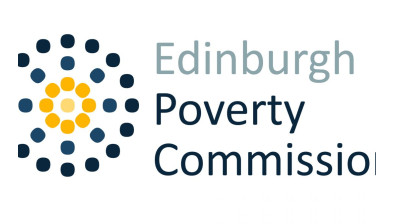New report highlights ‘shame’ of soaring food bank use in Scotland
More than 1,000 emergency food parcels were handed out on average every day in Scotland over an 18 month period, new figures have shown.

New research by A Menu for Change and the Independent Food Aid Network has revealed that 596,472 emergency food parcels were handed out between April 2018 and September 2019, an increase of 22% over the period.
In March 2019, the organisations published for the first time the total number of food parcels distributed by the Trussell Trust and independent food banks, which make up 42% of the food bank picture in Scotland.
Between April 2018 and September 2019, 278,258 emergency food parcels were distributed by 91 of the 101 independent food banks operating in Scotland for which data was available. The Trussell Trust reported a further 318,214 parcels were distributed by its network of 135 venues during the most recent period.
Combining these totals means that at least 596,472 food parcels were handed out in the 18 months up to September 2019, which equates to more than 1,000 every day.
Food bank figures represent only the tip of the iceberg of those experiencing food insecurity with people often skipping meals or going without food instead of using a food bank. The new figures also do not account for other types of emergency food aid provision.
A Menu for Change – the partnership between Oxfam Scotland, Nourish Scotland, the Poverty Alliance and the Child Poverty Action Group in Scotland – and the Independent Food Aid Network say the UK Government must ensure people have sustainable and secure incomes to stop them being pushed into food insecurity.
Last year, research by A Menu for Change revealed how inadequate and insecure incomes from social security and work are causing people to become food insecure.
Now, A Menu for Change and the Independent Food Aid Network are demanding the new UK Government increases the National Living Wage to the Real Living Wage, restores the value of key benefits, and uprates all benefits with inflation. They also want the income families receive to be improved by removing the two-child limit and benefit cap, zero-hours contracts banned to improve job security and better support for people who experience income shocks through life events like illness and bereavement.
Scottish ministers must also use their powers to increase funding to the Scottish Welfare Fund which has faced a real-terms cut since 2013, ensuring local authorities are fully able to support people at crisis point, the organisations added.
Margaret MacLachlan, project manager, A Menu for Change, said: “As we start a new decade, the relentless pressures forcing people to need emergency food aid continues. These figures are deeply troubling and reveal a grim picture of rising levels of food insecurity in Scotland.
“A weakened social security system, low pay and insecure work are tightening the grip of poverty and forcing people to crisis point. The long-term solution to food insecurity is not food banks, it is ensuring people have secure and reliable incomes. In 2020, we must do more to ensure we can consign food banks to the history books.
“Today’s statistics are shocking, but experts also warn that data on food parcel distribution only provides a partial picture of the number of Scots struggling to put food on the table with many choosing to skip meals rather than use a food bank. Recent Scottish Government statistics revealed nearly one in 10 people in Scotland were worried about running out of food in 2018.
“The new UK Government must act urgently to fix Universal Credit and uprate working-age benefits, but Scottish Ministers can and should act too by increasing the Scottish Welfare Fund, which has faced a real-terms cut in its budget since 2013. No one in rich Scotland should run out of money to buy food and political leaders must act now to prevent more people being dragged into poverty.”
Scottish Greens parliamentary co-leader Alison Johnstone has said the new report is a source of shame for Scotland.
Ms Alison Johnstone said: “This meteoric rise in the need for emergency food in Scotland must be a source of great shame for this wealthy, food-rich country. In just 18 months, food bank use has increased by more than a fifth, which is completely unacceptable in the 21st century.
“There is no doubt that food insecurity comes from income insecurity. There’s more than enough food, but people don’t have enough money to buy it. That’s why the Scottish Greens demand a welfare system and employment laws based on dignity and human rights. That means the Scottish Government must recognise the current approach is not working and embed the right to food into law as was promised in the Good Food Nation Bill proposals.
“This is also time to improve our safety net, and I’d encourage government to look at progressing the trials of a universal basic income.”
Scottish Labour’s spokesperson for the eradication of poverty and social inequality David Stewart added: “It is a national scandal that foodbank use continues to rise year after year, with working families forced to ask for food parcels to get by.
“The SNP’s failure to use powers it already has to challenge the devastating impact of Tory cuts at Westminster mean adults and children across the country are being failed every day.
“The First Minister must take action now to reverse the continuing rise of foodbank dependency in Scotland by making sure every person has access to affordable housing, a real living wage and a stable jobs market that means it always pays to work.”








